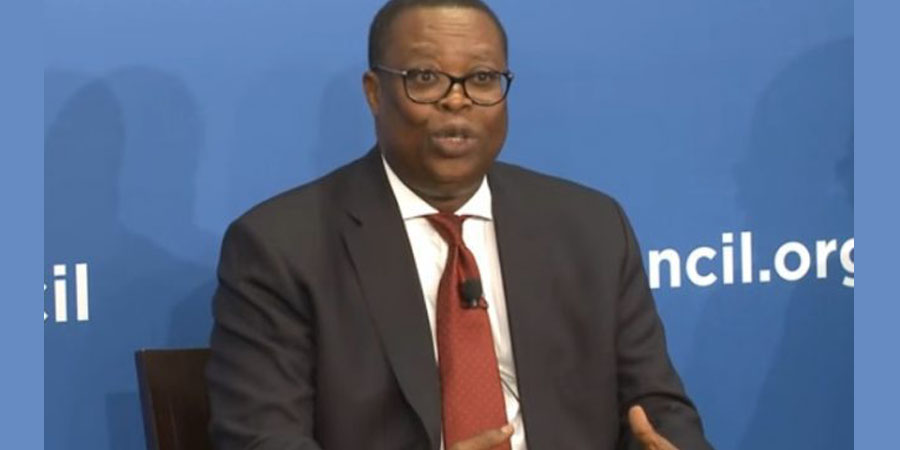The Code of Conduct Tribunal (CCT) Chairman Danladi Yakubu Umar on Monday defended the ex-parte application he granted for the suspension of Justice Walter Onnoghen as the Chief Justice of Nigeria (CJN).
The decision is in line with the inherent powers of the tribunal, Umar said, adding: “It is left to the appellate court to determine whether or not the order was rightly or wrongly granted.”
He also explained why the tribunal did not comply with orders by the High Court of the Federal Capital Territory (FCT) and the National Industrial Court to halt Justice Onnoghen’s trial. They are courts of coordinate jurisdiction, Umar said.
He, however, stressed that the chairman and members of the CCT are not “constitutionally subject to disciplinary proceedings by either the National Judicial Council (NJC) or the Federal Judicial Service Commission (FJSC)”.
According to the CCT chairman, only the Court of Appeal and the Supreme Court have supervisory powers over the tribunal.
Umar made the clarifications in his response to a query sent to him by the FJSC following a petition by a lawyer, Grace Stephen Wogor, that the CCT chairman acted ultra vires in granting an order for the suspension of the CJN.
The tribunal, on January 23, approved an ex-parte application which led to the suspension of Justice Onnoghen by President Muhammadu Buhari.
In his response to the FJSC query/letter, Umar said the tribunal has the powers to hear the ex-parte motion.
Besides, he said the tribunal has the jurisdiction to try the CJN.
It was the first time the position of the tribunal on Justice Onnoghen’s trial will become public knowledge.
Umar said: “I acknowledge the receipt of your letter Ref: FJSC/ 38/01/5/58 dated 1st February 2019 on the above subject matter, I have examined the contents of your letter under reference and the accompanying petition thereto and would like to comment as follows;
“The petitioner, Grace Stephen Wogor, in her petition, alleged eight grounds in her petition, which in summary could be consolidated to only four grounds.
“The petitioner had alleged that I granted an ex-parte Order directing the President to suspend the Chief Justice of Nigeria, who is a defendant in a charge filed against him at the tribunal.
“It is important to state that I acted within the inherent powers and jurisdiction of the tribunal and that whether or not the order was rightly or wrongly granted is now a matter to be determined by the Court of Appeal since the defendant appealed against the ex-parte order.
“Therefore, with the appeal against the ex-parte Order at the Court of Appeal, the matter is now subjudice.”
On the assumption of jurisdiction for the trial of Justice Onnoghen, the CCT chairman said the tribunal has the legal backing to put him in the dock.
He said: “The petitioner alleged that I assumed jurisdiction on the matter of the CJN as defendant in a charge filed against him by the Code of Conduct Bureau (CCB).
“The defendant (Onnoghen) had appealed the ruling of the tribunal on the jurisdiction to the Court of Appeal.
“On 30th January, 2019, the Court of Appeal delivered a ruling on the appeal filed by the defendant to the effect that the defendant should appear before the Code of Conduct Tribunal to answer the charges filed against him by the CCB.
“Consequently, the appeal by the defendant was dismissed by the appellate court, thereby affirming the ruling on the tribunal’s jurisdiction.”
On failure to comply with some lower court orders to halt the Justice Onnoghen’s trial, the CCT chair said it was because they are courts of coordinate jurisdiction with his tribunal.
He added: “The petitioner alleged that I failed to comply with orders issued by the High Court of the Federal Capital Territory and the National Industrial Court restraining the tribunal from taking further steps in a matter before it.
“It is worthy of note that both the High Court of FCT and the National Industrial Court are courts of coordinate jurisdiction with the CCT.
“More so, the High Court of FCT and the National Industrial Court have nothing to do with any matter pertaining to Non-Declaration of Assets. The tribunal is the only court that has jurisdiction on the matter relating to failure to declare assets or false declaration by public servants.
“The only courts that have supervisory powers over the tribunal are Appeal Court and the Supreme Court of Nigeria.”
The CCT chair denied breaching judicial oaths because he did not subscribe to such, he could not be sanctioned either by the NJC or the FJSC.
Umar said: “The petitioner alleged that judicial oaths were breached and that the NJC should consider appropriate sanctions.
“It is to be noted that the chairman and members of the CCT are not judicial officers. This is predicated on the fact that the chairman and members of the tribunal, during swearing into office, only subscribe to official oaths and not judicial oaths.
“Therefore, not being a judicial officer, I did not subscribe to Judicial Oaths and therefore could not have breached any Judicial Oaths as alleged.
“With regards to the prayer of the petitioner for appropriate sanction against the CCT chairman, it is important to note that the chairman and members of the tribunal, not being judicial officers, are not constitutionally subject to any disciplinary proceedings by either the NJC or the Federal Judicial Service Commission (FJSC).”
